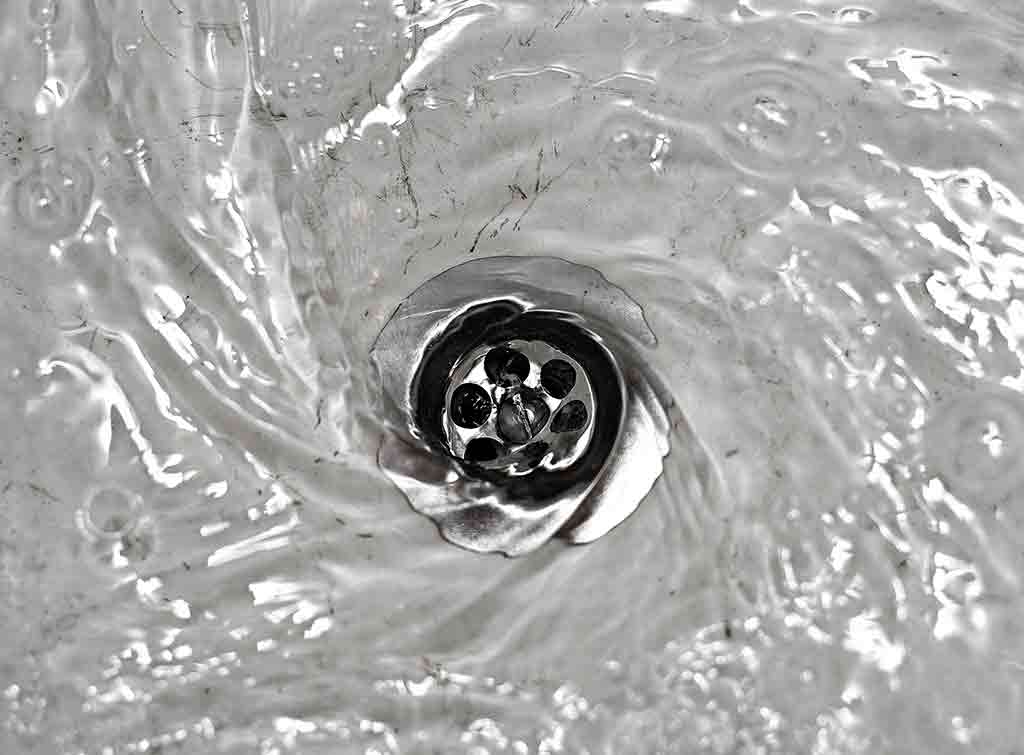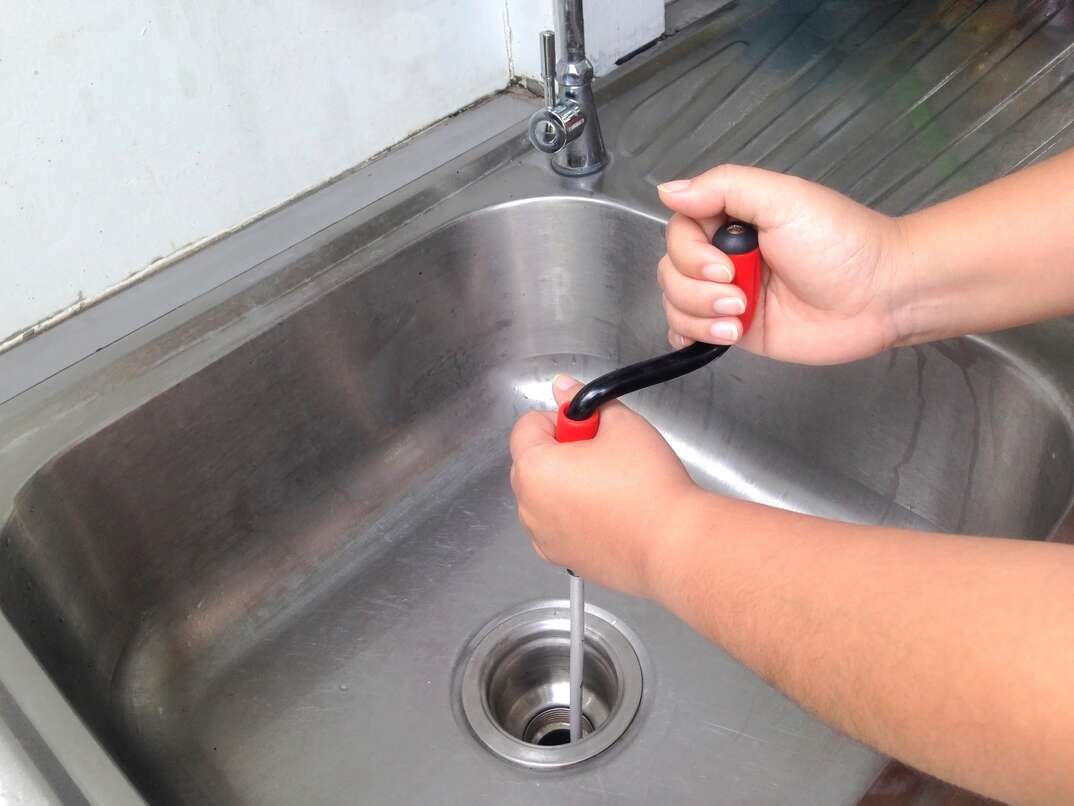Recommended Tips For Addressing A Slow-Draining Sink Fast
Recommended Tips For Addressing A Slow-Draining Sink Fast
Blog Article
Everybody seems to have their own views on the subject of Solved! How to Fix a Slow Sink Drain.

Intro
We have actually all existed: You're cleaning your teeth or cleaning your hands, and you notice the water merging in the sink. Rather than rapidly swirling down the drain, it lingers, turning your once-refreshing early morning routine into a miniature overload scene. A slow-draining sink isn't simply frustrating; it's frequently an indication of bigger plumbing problems lurking below the surface area. Fortunately is that many slow-draining sinks can be taken care of with a little knowledge, a few fundamental devices, and some patience. All set to tackle this project head-on? Let's roll up our sleeves and dive right in.
Understanding the Root Causes Of a Slow-Draining Sink
Prior to you start poking around in your pipes, it helps to recognize what could be triggering the downturn. Comprehending the root cause makes it less complicated to choose the ideal fix.
Tools and Products You'll Need
The right tools make all the distinction. The good news is, you will not need a totally stocked plumbing's van to do the job.
Step-by-Step Guide to Fixing a Slow-Draining Sink
Currently, let's get involved in the nitty-gritty. This step-by-step process will certainly direct you via easy methods to recover your sink's drain.
Step 1: Get Rid Of and Tidy the Stopper
Usually, the stopper (that little plug you push down to obstruct water) is the first perpetrator. Remove it meticulously and clean off any type of hair or substance caught around its base. Wash it extensively before placing it back in position.
Action 2: Make Use Of a Bettor to Displace Debris
Got that bettor prepared? Placement it over the drain and offer it a couple of firm pumps. The concept is to create suction that can loosen any blockage. If you see bits of debris drifting up, you get on the right track.
Action 3: Try a Drain Snake or Wire Wall Mount
If the bettor does not work, it's time to draw out the drain snake. Gently feed it right into the drain and twist as you go. You could feel some resistance-- that's likely the blockage. Keep turning and pulling till you remove the blockage. If you do not have a drain serpent, a straightened cable wall mount can operate in a pinch.
Tip 4: Apply a Do It Yourself Drainpipe Cleaner
An all-natural cleaner made from cooking soft drink and vinegar can break down recurring grime. Put half a cup of baking soft drink into the drainpipe, complied with by half a mug of vinegar. Allow it fizz for around 15 mins, then flush with warm water. This chain reaction typically does marvels for minor obstructions.
Step 5: Rebuild and Examine the Sink
Placed everything back together and run the tap. Does the water now swirl away at a reputable speed? If yes, give yourself a pat on the back. Otherwise, do not anguish-- there are still a few more dress up your sleeve.
Important Devices for DIY Repair Works
A bettor is your best starting factor. A small, sink-sized plunger produces suction that can remove minor blockages. For more persistent clogs, a drainpipe serpent (often called a plumbing technician's auger) works marvels. A pair of gloves, a flashlight, and maybe a pair of protective safety glasses are additionally helpful.
Recommended Cleaning Solutions
Mild recipe soap and warm water can help break down oily build-up. A combination of cooking soda and vinegar is a tried and true home remedy, and enzymatic cleaners provide an even more eco-friendly approach. Maintain chemical drainpipe cleaners as a last hope, as they can be severe on your pipes.
Usual Wrongdoers Behind Slow Water Drainage
So, what's blocking points up? Typically, it's a blend of daily particles-- think hair, soap scum, toothpaste deposit, and remaining food fragments. With time, these little bits gather and hold on to the pipe walls, progressively narrowing the passage and making it harder for water to go through. In some cases, natural resource from difficult water can also include in the substance, creating the ideal tornado for persistent blockages.
When is it Time to Do Something About It?
If you notice the water draining pipes slower than common, it's a great idea to step in earlier as opposed to later on. Waiting too long might lead to finish obstructions, undesirable smells, or even pipe damage. If the water takes more than a couple of secs to remove after turning off the faucet, consider it a red flag and prepare to place on your do it yourself hat.
Security First: Preventative Measures and Prep work
Before you launch into unclogging setting, think about safety. You're handling potentially unclean water and particles, so slip on a set of handwear covers. If you're utilizing chemical cleaners, make certain the space is well-ventilated and adhere to the guidelines on the label.
Safety Gear and Work Space Configuration
Set some old towels or rags around the sink area to capture sprinkles. Eliminate any products that may get in your means, like soap dispensers or toothbrush owners. See to it you have great lights-- get hold of a flashlight if required.
Alternate Approaches for Stubborn Clogs
Not all clogs are produced equivalent. If your sink still declines to cooperate, think about these different options.
Baking Soda and Vinegar Approach
We currently discussed this, but it's worth keeping in mind once more. This mild, environment-friendly approach is safer than chemical cleaners and commonly fairly reliable.
Enzymatic Drain Cleaners
Enzyme-based cleansers make use of all-natural microorganisms to absorb organic matter. They're an excellent choice if you're looking to stay clear of rough chemicals. Simply bear in mind, they might take a bit longer to work their magic.
Chemical Drain Cleansers: Benefits And Drawbacks
Chemical cleaners can blast with tough obstructions quickly, but they're not without downsides. They can generate warm and fumes, damages pipes if utilized exceedingly, and position ecological risks. Use them moderately, and constantly follow the directions meticulously.
Preventive Measures to Keep Your Sink Flowing
Avoidance is the best remedy. By embracing a couple of simple habits, you can keep your sink from decreasing in the first place.
Routine Cleaning Up Practices
Clean down the sink container and fixture location on a regular basis. Get rid of hair or food particles prior to they have a chance to wash down the drain.
Preventing Dangerous Materials Away
Reconsider prior to unloading coffee premises, oil, or coarse veggie scraps down the sink. These offenders cling to pipeline walls, creating clogs gradually.
Routine Upkeep Checks
Arrange a fast monthly examination. Run hot water via the sink for a few mins, taking notice of the circulation. If it appears sluggish, act fast prior to it becomes a full-blown clog.
When to Call a Specialist Plumbing Professional
Often, regardless of how tough you attempt, that clog simply will not budge. That's when it's time to generate the pros.
Indicators That Indicate an Extra Major Concern
If your sink drains gradually in spite of numerous attempts, or if you observe water supporting in other components (like your shower or commode), you may have an extra major pipes concern prowling much deeper in the system.
Balancing Do It Yourself Initiatives with Specialist Assistance
While DIY can conserve you cash and use a sense of achievement, there's no shame in calling a professional. A professional plumbing technician can assess your entire pipes setup, making sure there's no underlying damage or long-lasting problem that might cost you a lot more down the road.
Comparing Prices and Long-Term Solutions
Prior to deciding, take into consideration the big picture. An economical, quick fix may fix the trouble momentarily, however buying a more permanent remedy can save you cash and stress and anxiety in the future.
Considering the Costs of DIY vs. Expert Repairs
Do it yourself repairs usually set you back bit greater than the price of a bettor or a bottle of cooking soft drink. Expert solutions, on the other hand, featured a price yet may avoid repeated issues and expensive repairs later on.
Purchasing Top Quality Fixtures and Upgrades
If your sink's design contributes to regular clogs, it might be worth upgrading to higher-quality components or modifying the pipes design. Consider this an investment in your house's capability and convenience.
Verdict
A slow-draining sink can seem like a minor irritation, but it's typically a sign that your plumbing requires a little TLC. By recognizing the origin, utilizing the right tools and techniques, and committing to straightforward safety nets, you can keep your sink streaming openly. And when all else fails, never ever be reluctant to hire a specialist-- your home's plumbing deserves the investment in care and upkeep.
Three Common Ways to Fix a Slow Drain
Baking Soda Method
Boil a full pot of water. Measure out cup of baking soda and pour it down the drain. Then take cup of the magical cleansing substance known as white vinegar and drop that down there too. Allow the mixture to fizz in the drain for five minutes as the vinegar and baking soda combine. Now dump in that whole pot of boiling water. This combination of cleaning substances should clear out anything that is causing your sink to drain slowly. If it doesn t...
Zip-It
If the baking soda method doesn t clear out your drain, it may be because a significant amount of hair and/or other debris has collected there and you need to remove it. Purchase a Zip-It tool at any home improvement or hardware store and insert it into your drain. It will catch any collected hair or debris that s blocking the flow of water. Pull it out. If it s got a big clump of hair, etc. on the end, you ve probably got your culprit.
Drain Cleaner
If these methods don t work, there is the standard drain cleaner that you can also buy in a hardware store or even your local grocery store. It s better if you can use a household solution, but these drain cleaners often work in a pinch. They re very simple to use. You generally just dump them in your drain and wait. If even this method is not effective, it may be time to call the plumber.
https://www.mrrooter.com/oneida/about-us/blog/2017/july/three-common-ways-to-fix-a-slow-drain/

I came across that piece about Solved! How to Fix a Slow Sink Drain when scouting around the web. Sharing is caring. You just don't know, you could be doing someone a favor. I praise you for being here. Come back soon.
Click Here! Report this page